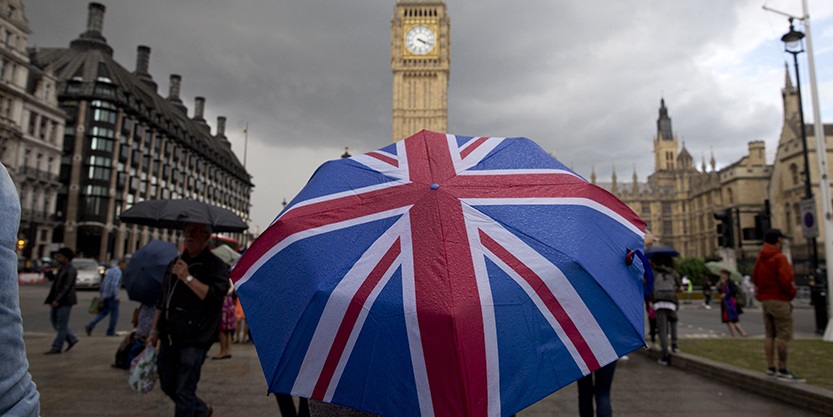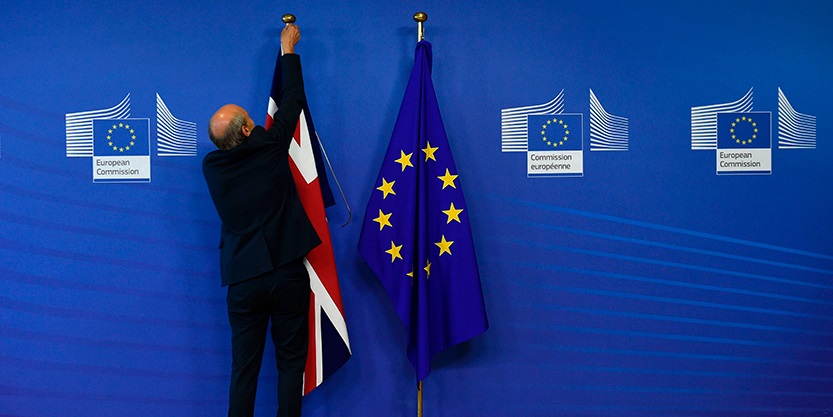Brexit bells ring: What next for investors?
Uncertainty over the UK’s trading relationships is just beginning
The UK has officially left the European Union (at 11pm GMT on Friday 31 January). For now, there’s no change in the UK’s economic relationship with the EU, with the country still treated as a member of the single market and customs union.
But that arrangement only lasts until the end of 2020, when a new trading agreement will be negotiated.
As the UK moves into trade talks with the EU for the first time since the early 1970s, David Rea, chief economist for EMEA at JLL, answers the key issues facing investors.
Brexit Day: That’s the easy bit done. What impact might we see on UK economic growth?
The UK is set to grow faster than its European counterparts this year – but it usually grows faster than most European countries, so this is not unusual. The UK economy has a higher natural rate of growth than France, Germany and Italy due to a variety of supportive factors: looser labour market legislation, less domestic regulation on business, alongside a faster rate of population and workforce growth.
But the UK economy has underperformed since the Brexit referendum. Europe felt little effect over that period. Could that scenario now change?
Quite possibly, yes. Looking back, much of the UK’s underperformance since the Brexit referendum in mid-2016 can be attributed to uncertainty about the future trading environment. We know the UK economy slowed as businesses cancelled, postponed or reduced investment. In contrast, European economies suffered little due to Brexit, instead affected much more by rising U.S. protectionism and softening growth in China.
Now the UK is playing catch-up: businesses have some certainty and could hit the “go” button on – or conversely, permanently cancel – investments. Low growth in Germany and fears of a recession there may see the UK catch up quicker than perhaps first envisaged.
Still, the details of any future trade agreements remain uncertain. What can we expect on this front?
If an agreement between the UK and EU is reached by the end of December, as planned, it is likely to be narrow – for example on goods only. Or it could be shallow and cover tariffs and quotas. If it’s incomplete, we end up with a stepping stone to further discussions post-transition period. There’s a 50 percent chance this happens, according to Oxford Economics. Yes, there’s now some certainty. But that does not automatically mean the end of uncertainty.
What about trade agreements globally?
The bigger picture is that the UK is both loosening trade ties and implementing barriers to trade. The negotiation of trade agreements with partners other than the EU is certainly something for real estate investors to keep an eye on. There’s growing use of, and reliance upon, large trade blocks. The U.S. has NAFTA. South East Asia has ASEAN. Japan, Asia and Oceania have CPTPP (the Comprehensive and Progressive Agreement for Trans-Pacific Partnership). We’ll have to wait and see what the UK will do with these potential partners.
But will there be more protectionism?
The U.S. has imposed trade sanctions on Canada, Mexico, China, the EU and Japan. It opened a lengthy, albeit now cooling, trade war with China and now threatens sanctions against the UK if it doesn’t ban Huawei from its 5G network. At the same time, it is often forgotten that the EU is hugely protectionist, protecting those inside its single market from non-members. Protectionism won’t go away.
How do you expect real estate investors to respond?
There’s certainly been an improvement in sentiment among investors since the election late last year. After volumes dropped in 2019, we expect investment to rebound in 2020 particularly from overseas investors who are keen to exploit London’s yield arbitrage over other major European cities. The strong appetite will spread beyond prime or core product if the economy remains robust – and particularly if the Brexit negotiations proceed better than expected. Although, going forward, the prospect of more uncertainty around the outcome of trade talks between the UK and EU could see investors return to a cautious position.
So there are still plenty of questions. Is there anything we know for certain?
If anything, we know that negotiators are playing the long game. For all the involvement politicians will have, negotiations will be conducted by scores of civil servants on each side. Their focus is firmly on the long-term picture and principles. They will be immune to the month-to-month fluctuations of economic statistics.

